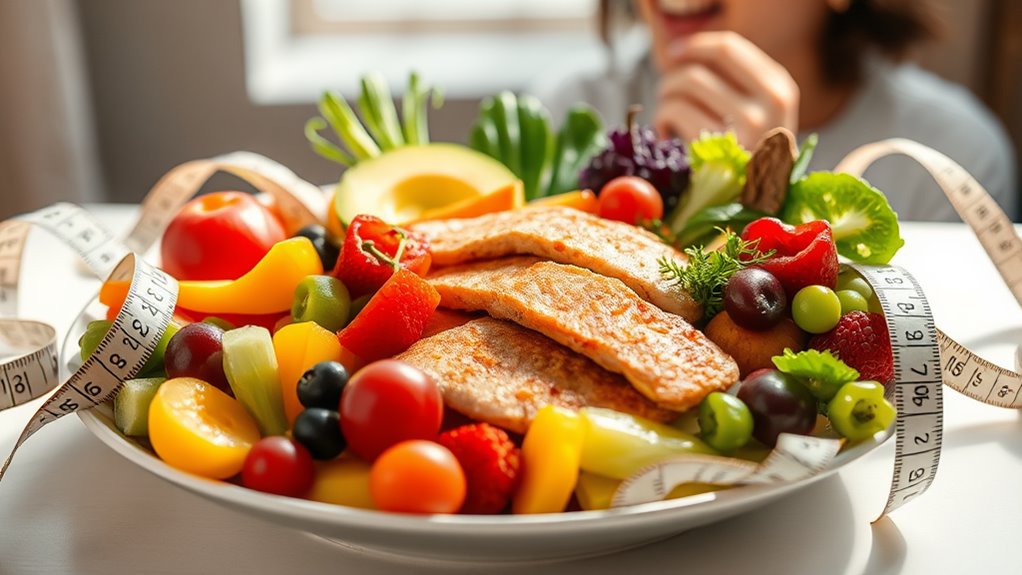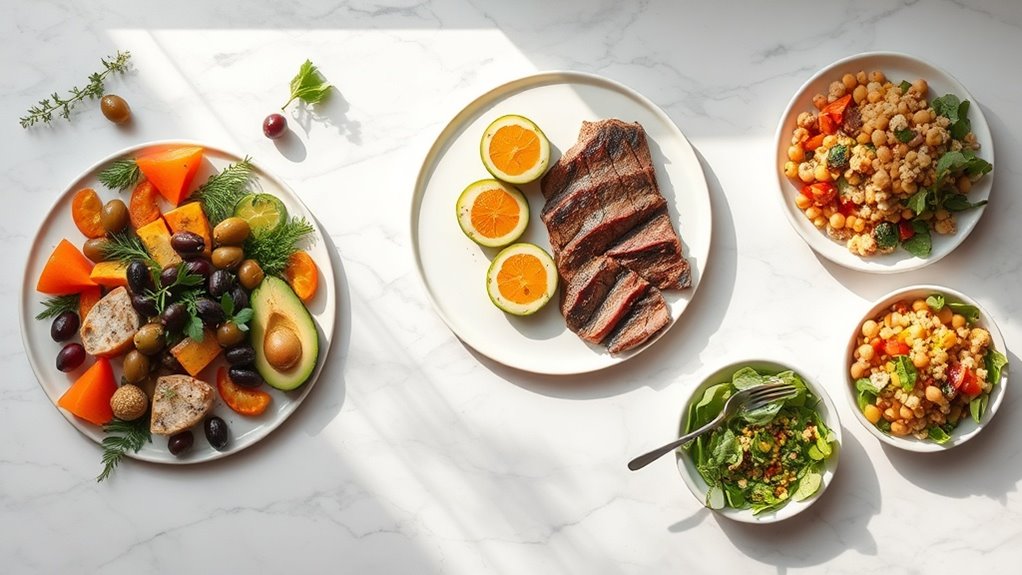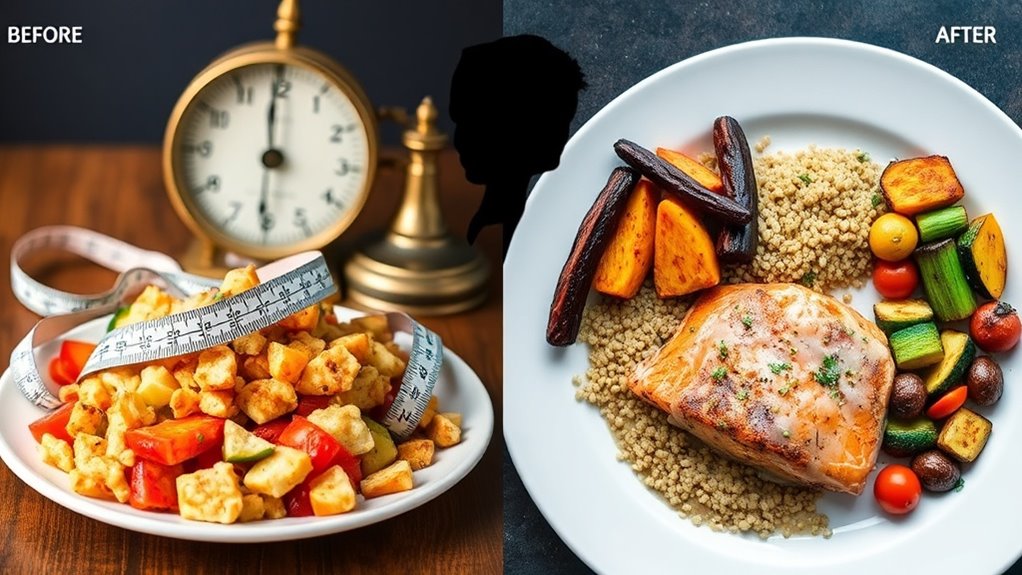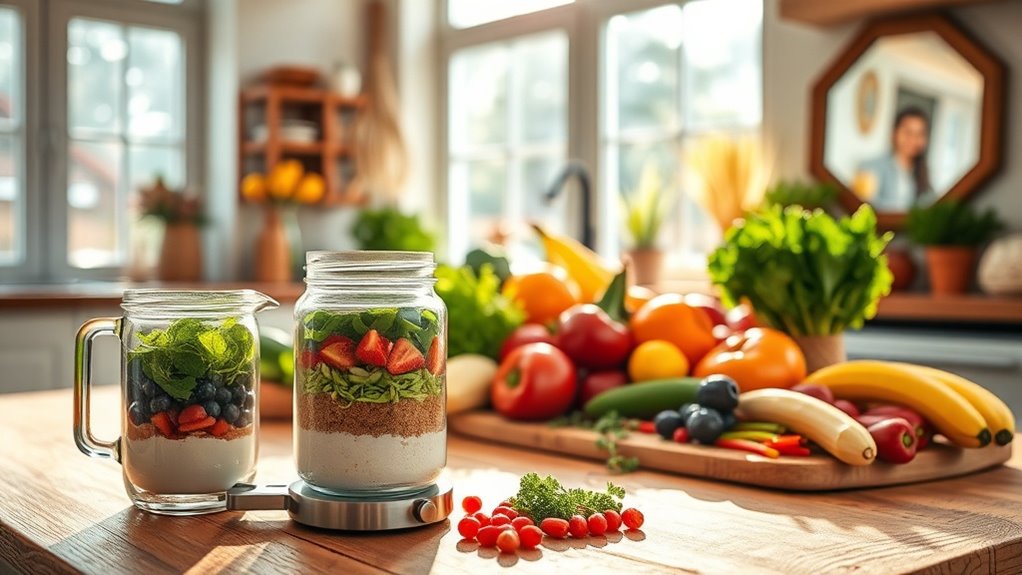Can You Really Eat More and Still Lose Weight. The Science Says YES!
Yes, you can eat more and still lose weight! By focusing on nutrient-dense foods, like fruits, vegetables, and lean proteins, you’ll feel satisfied and energized without empty calories. These foods allow you to enjoy larger portions without compromising your weight goals. Regular meal times and mindful eating further enhance your satiety. Plus, incorporating high-volume, low-calorie foods can help manage your appetite. Stick around to discover more strategies for successful weight loss!
Understanding the Basics of Weight Loss
While you might think that losing weight means eating less, understanding the basics of weight loss reveals a more nuanced approach. You can actually eat more and lose weight by focusing on the right foods. It’s not just about cutting calories; it’s about making smarter choices that nourish your body.
When you fill your plate with whole, nutrient-dense foods, you’ll feel satisfied and energized, helping you resist the urge to snack on unhealthy options.
Incorporating more fruits, vegetables, and lean proteins into your meals can be a game changer. These foods are lower in calories but high in volume, allowing you to eat more without feeling deprived. Additionally, embracing nutritious foods can enhance your fat loss journey and overall well-being.
You’ll also find that these choices boost your metabolism and improve your overall health. So, instead of thinking about restriction, embrace a mindset that encourages you to eat more of the right foods, paving the way for sustainable weight loss and a sense of belonging in a healthier community.
The Role of Nutrient-Dense Foods
Nutrient-dense foods play a vital role in your weight loss journey. These foods are packed with vitamins, minerals, and other essential nutrients while being lower in calories. When you fill your plate with fruits, vegetables, whole grains, and lean proteins, you’re not just eating healthier; you’re also giving your body what it needs to thrive.
By choosing nutrient-dense options, you can enjoy larger portions without compromising your goals. Think about it: you can savor a big salad loaded with colorful veggies or a hearty bowl of quinoa, both of which keep you full while nourishing your body.
Plus, when you eat well, you’re more likely to feel satisfied and energized, making it easier to stick to your weight loss plan. Embracing these foods creates a supportive community around healthy living, reminding you that you’re not alone on this journey. Additionally, incorporating meal planning into your routine can further enhance your ability to enjoy these nutritious meals while staying on track.
Meal Timing and Its Impact on Satiety
Understanding how meal timing affects satiety can be a game-changer in your weight loss efforts. When you eat matters just as much as what you eat. Research shows that spreading your meals throughout the day can help keep you feeling full and satisfied.
By scheduling regular meal times, you’re less likely to experience those intense cravings that lead to overeating. Consider having balanced meals at consistent times. This routine can help train your body to expect food, making it easier to manage hunger.
Plus, eating at the same times daily can stabilize your blood sugar levels, further enhancing your satiety. Don’t forget the power of mindful eating, too. Take time to savor your meals and listen to your body’s hunger cues. Additionally, setting a cut-off time for eating can improve sleep and energy levels, further supporting your weight loss journey.
Strategies for Increasing Food Volume
One effective way to manage your weight is by increasing the volume of the foods you eat. You can do this by incorporating more low-calorie, high-volume foods into your meals. Think leafy greens, vegetables, and fruits—these foods are packed with nutrients and will fill you up without adding too many calories.
Another strategy is to start your meals with a broth-based soup or a salad. These options can help you feel fuller, so you’re less likely to overindulge later.
Also, consider using larger plates. This simple trick can make your portions appear more substantial, tricking your mind into thinking you’re eating more.
Finally, don’t forget about snacking! Choose snacks like air-popped popcorn or raw veggies with hummus; they’re satisfying and can be enjoyed in larger quantities. Additionally, staying properly hydrated can help curb cravings by distinguishing thirst from hunger, making it easier to manage portion sizes.
Embracing these strategies can help you feel satisfied while still reaching your weight goals.
The Science Behind Metabolism and Food Intake
While you may focus on what you eat, the science behind metabolism plays a crucial role in how your body processes food and manages weight. Your metabolism isn’t just about burning calories; it’s a complex interplay of hormones, energy expenditure, and nutrient absorption. Understanding this can empower you to make choices that support your weight goals. Additionally, incorporating high-protein breakfasts can significantly boost your metabolism early in the day.
| Factor | Impact on Metabolism |
|---|---|
| Muscle Mass | Increases calorie burn |
| Age | Slower metabolism over time |
| Activity Level | Higher activity boosts metabolism |
| Food Composition | Protein-rich foods enhance thermogenesis |
Real-Life Success Stories and Practical Tips
Many people find success in their weight loss journeys by applying knowledge about metabolism to their everyday lives. You might relate to stories of friends who’ve swapped processed snacks for whole foods, feeling fuller while shedding pounds.
They’ve discovered that eating nutrient-dense meals keeps cravings at bay and satisfies their hunger.
To kickstart your own journey, consider meal prepping. This ensures you’ve got healthy options ready, making it easier to avoid temptations.
Also, try focusing on portion sizes rather than strict dieting—enjoy your favorite foods in moderation.
Join a community, whether online or in person, where you can share your wins and struggles. Connecting with others helps keep you motivated.
Remember, it’s about progress, not perfection. Celebrate small victories, and don’t hesitate to experiment with different foods.
You’re not alone in this; many are finding joy in eating more while still losing weight!





